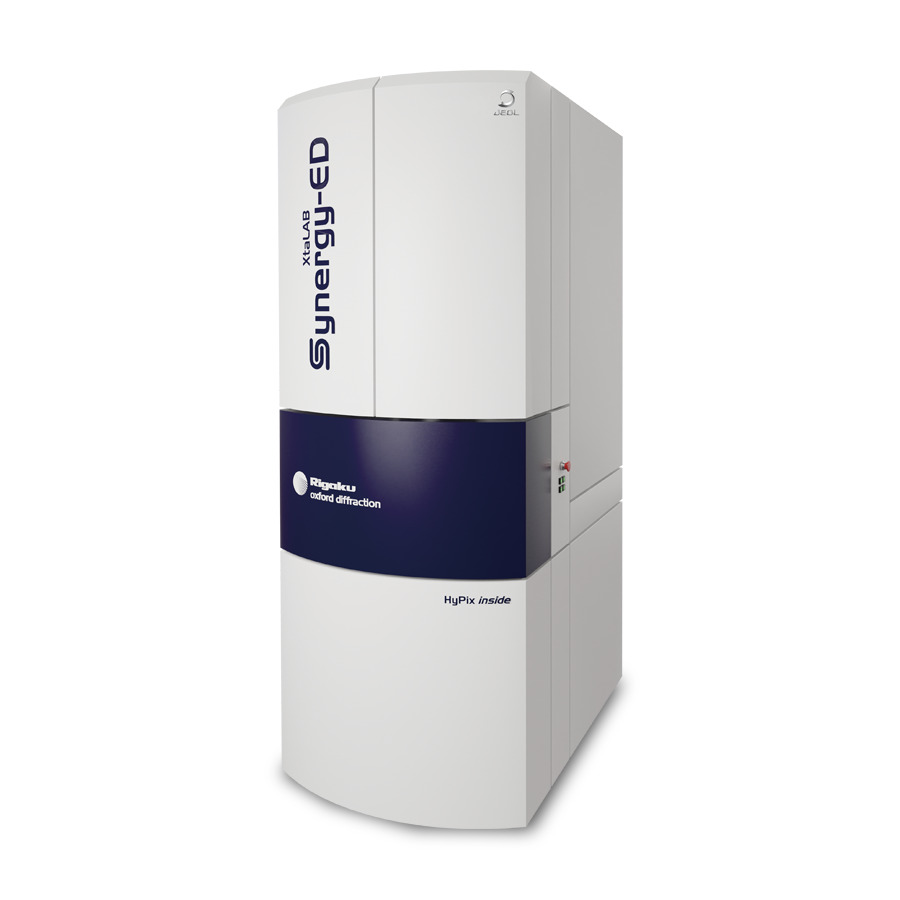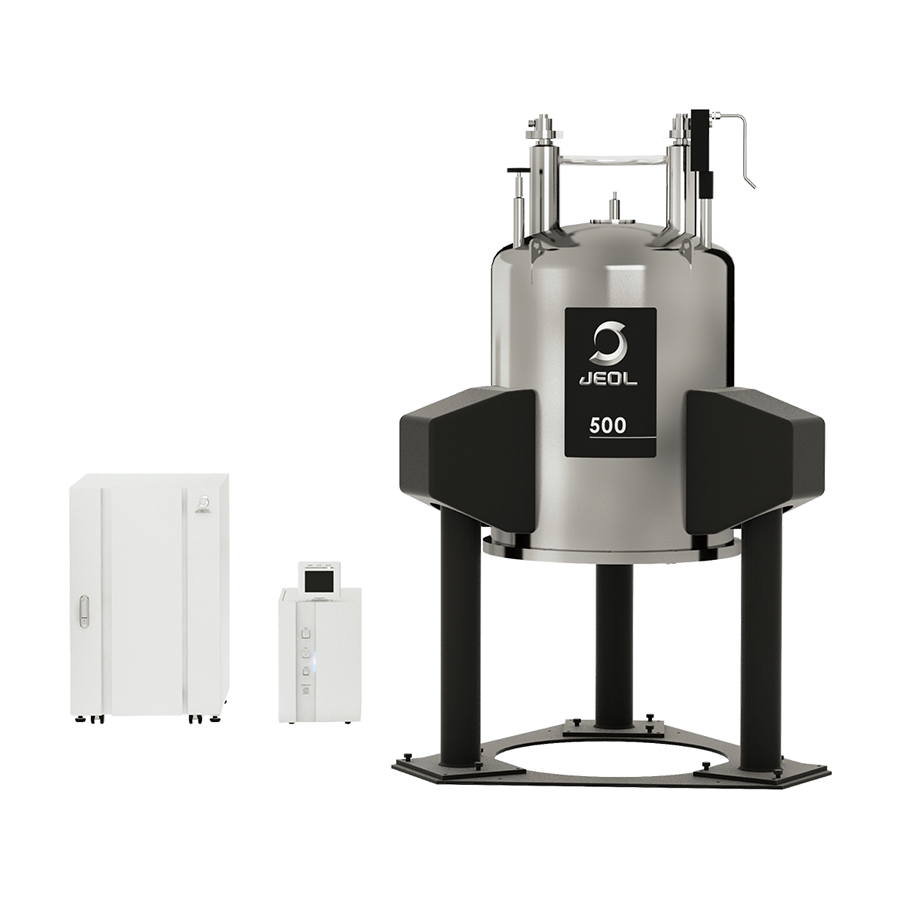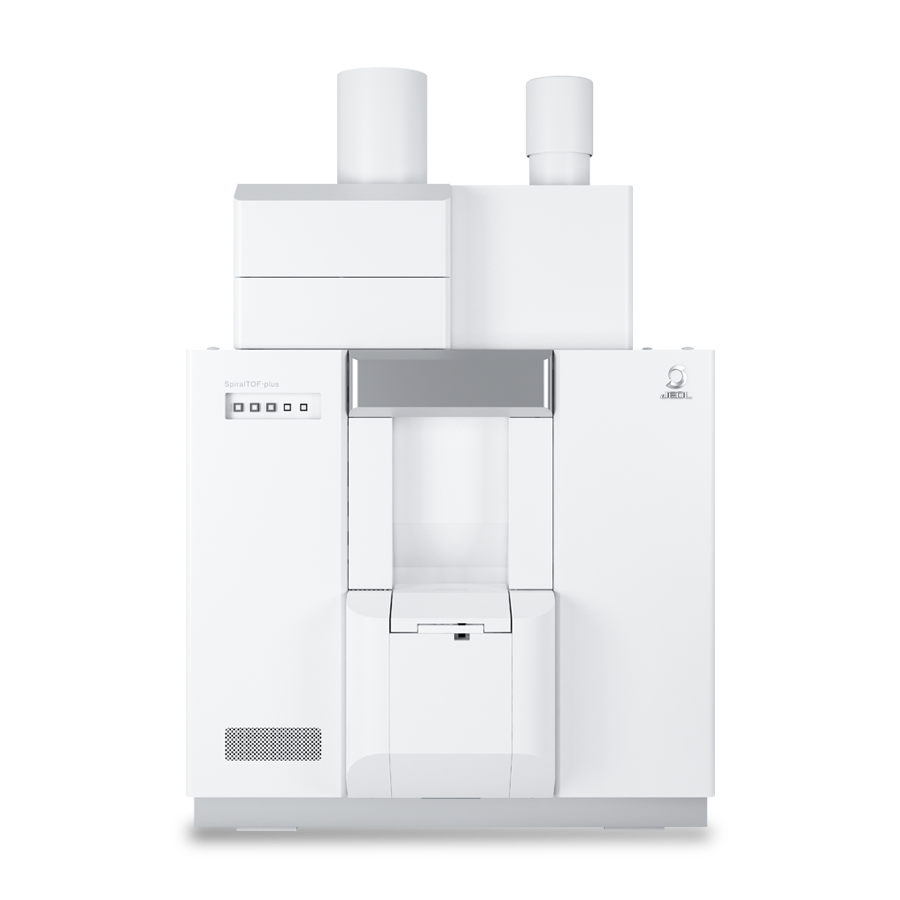Molecular Structure Analysis of Organic Compounds used in Agricultural and Food Chemistry
ED2022-06E
Structure analysis of agrochemical molecule with XtaLAB Synergy-ED, JEOL MS and NMR
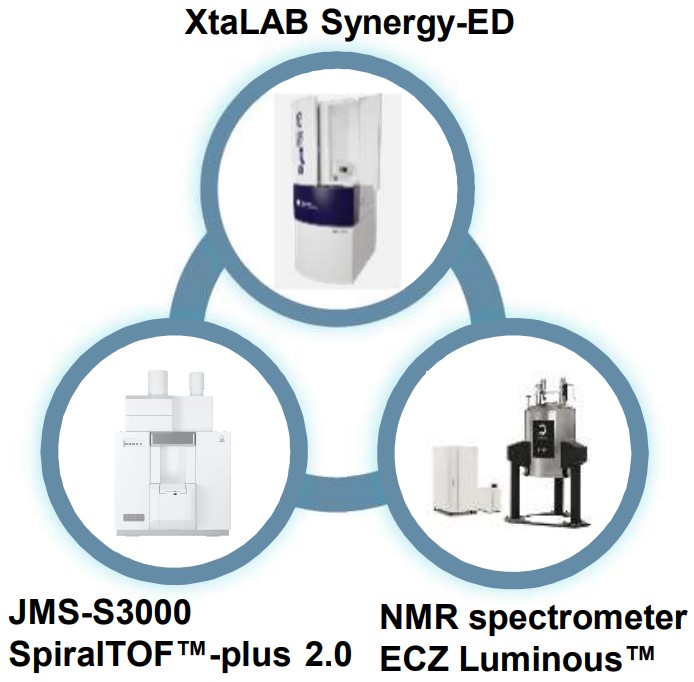
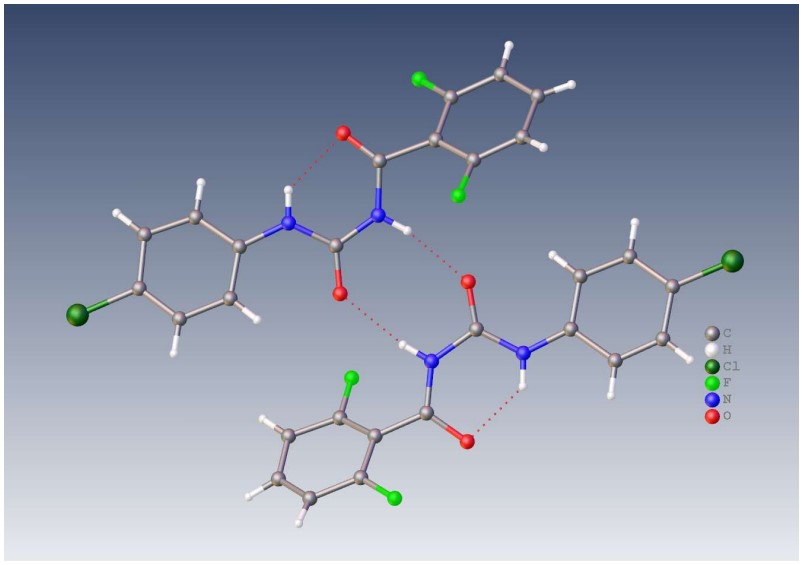
Electron diffraction structure analysis of Diflubenzuron, XtaLAB Synergy-ED
Diflubenzuron is an insecticide, approved by the WHO Pesticide Evaluation Scheme. It is a widely used in forest Management and agriculture. The EPA issued a Registration Standard for diflubenzuron in September 1985 (PB86-176500). Currently, 29 diflubenzuron products are registered. XtaLAB Synergy-ED allows molecular structural analysis of submicron particles of laboratory chemicals. In addition, the comprehensive analysis by JEOL mass spectrometer (MS) and nuclear magnetic resonance (NMR) spectrometer provides details of chemical structure information for molecular structure determination.
Chemical structure analysis of Diflubenzuron
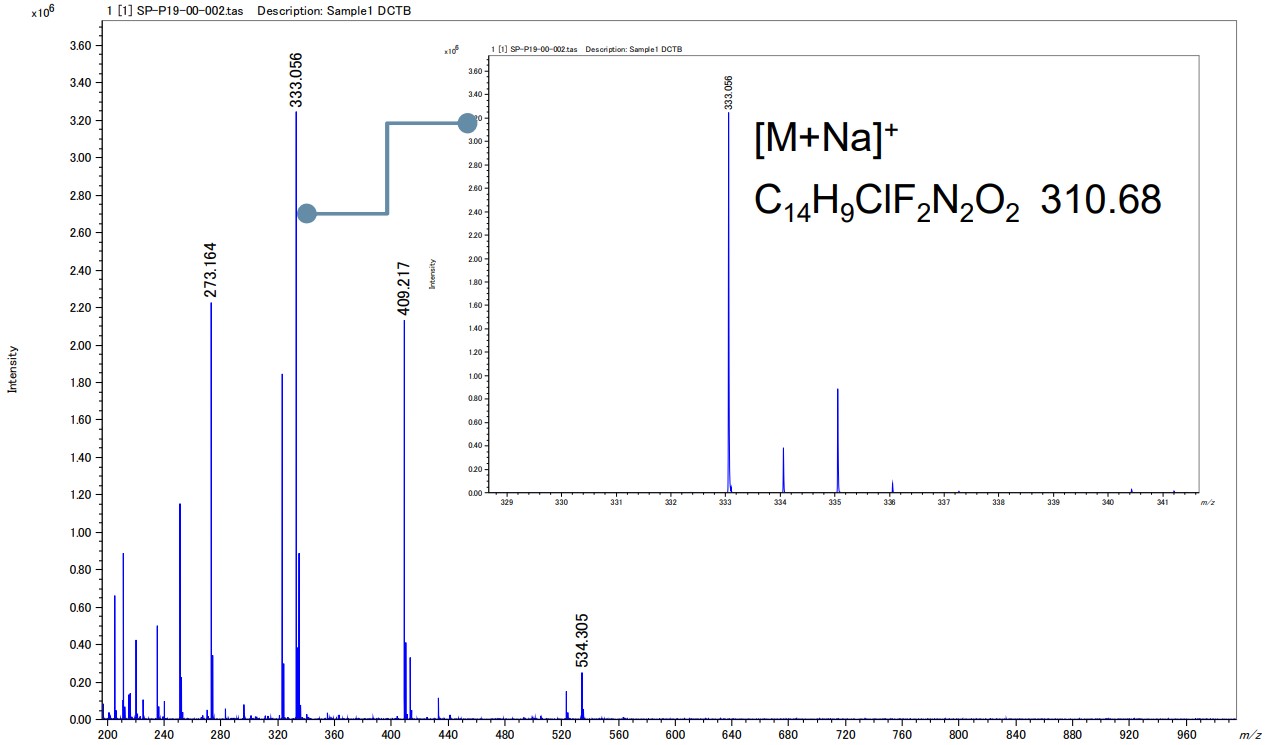
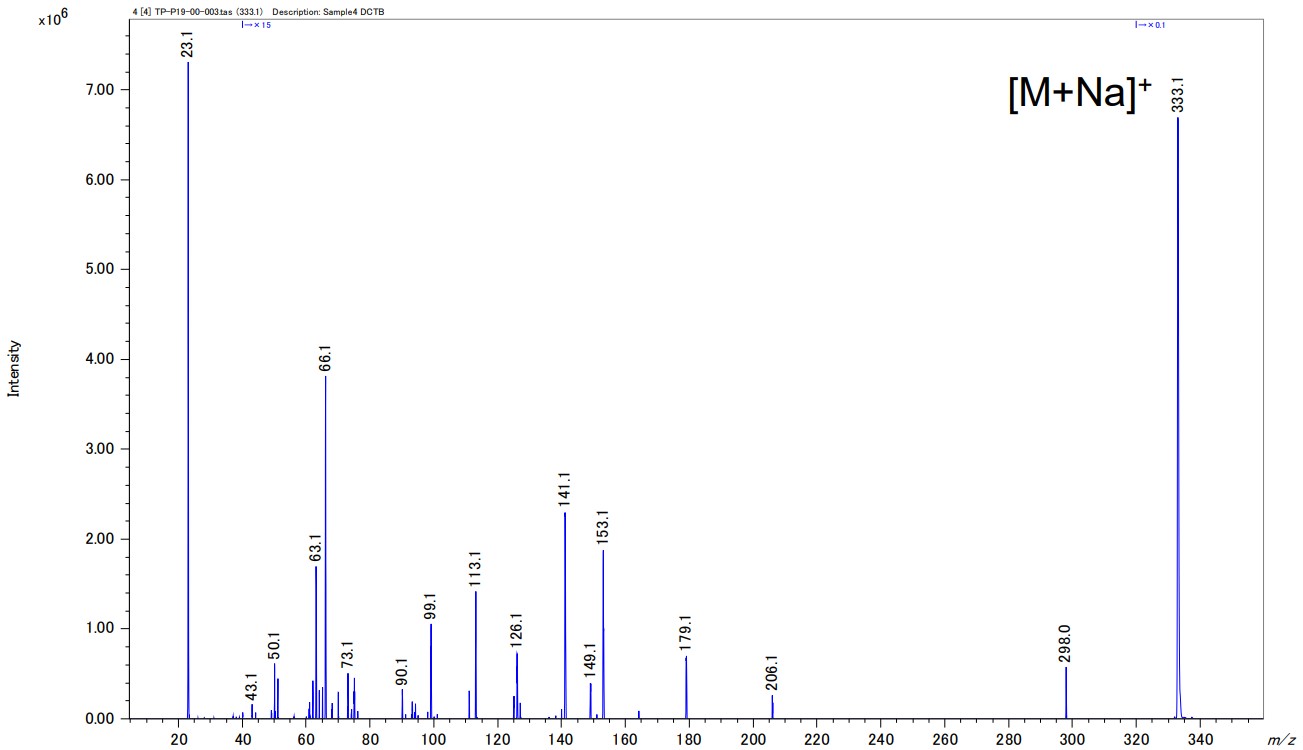
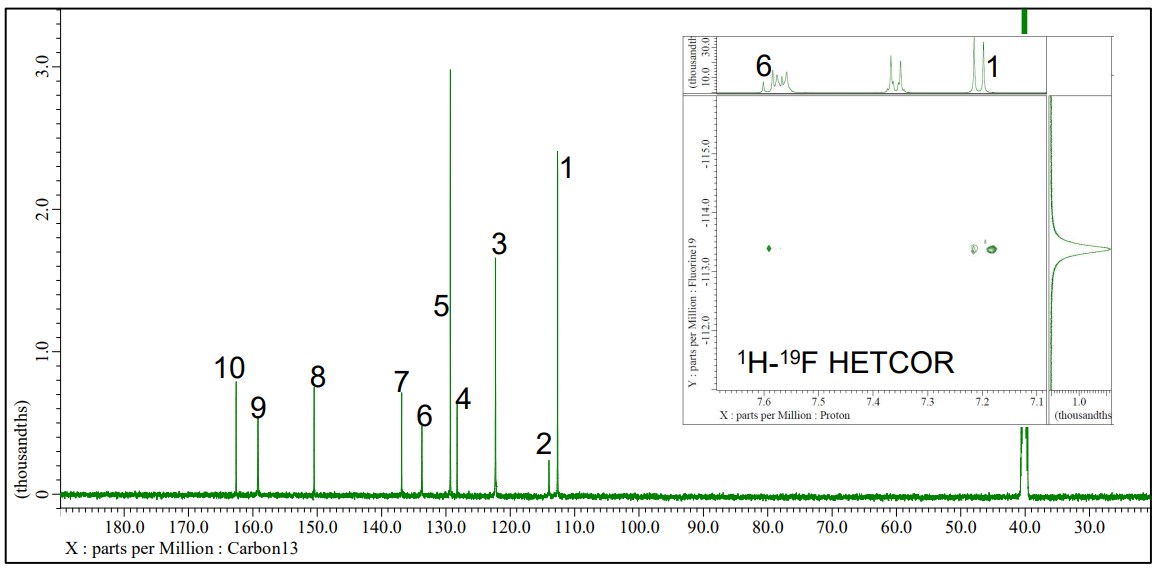
For elucidating the molecular structure of Diflubenzuron, the molecular formula is determined by using MS. In the example, the molecular formula of Diflubenzuron is provided from the Mass spectrum by using JMS-S3000 SpiralTOF™-plus 2.0 (shown top left). In addition, NMR analysis provides the details of Diflubenzuron chemical structure (shown bottom left). 1H-13C, 1H-15N and 1H-19F connectivity information is available for partial structure analysis of Diflubenzuron. ROYALPROBE™ HFX enables a wide variety of advanced 1H and 19F NMR experiments with dual tune mode. It is effective to simplify spectral assignments with 1H with 19F decoupling, 19F with 1H decoupling, 13C with 1H and 19F decoupling and many unique correlation experiments for the analysis of organic compounds that contain fluorine atoms, for example Diflubenzuron.
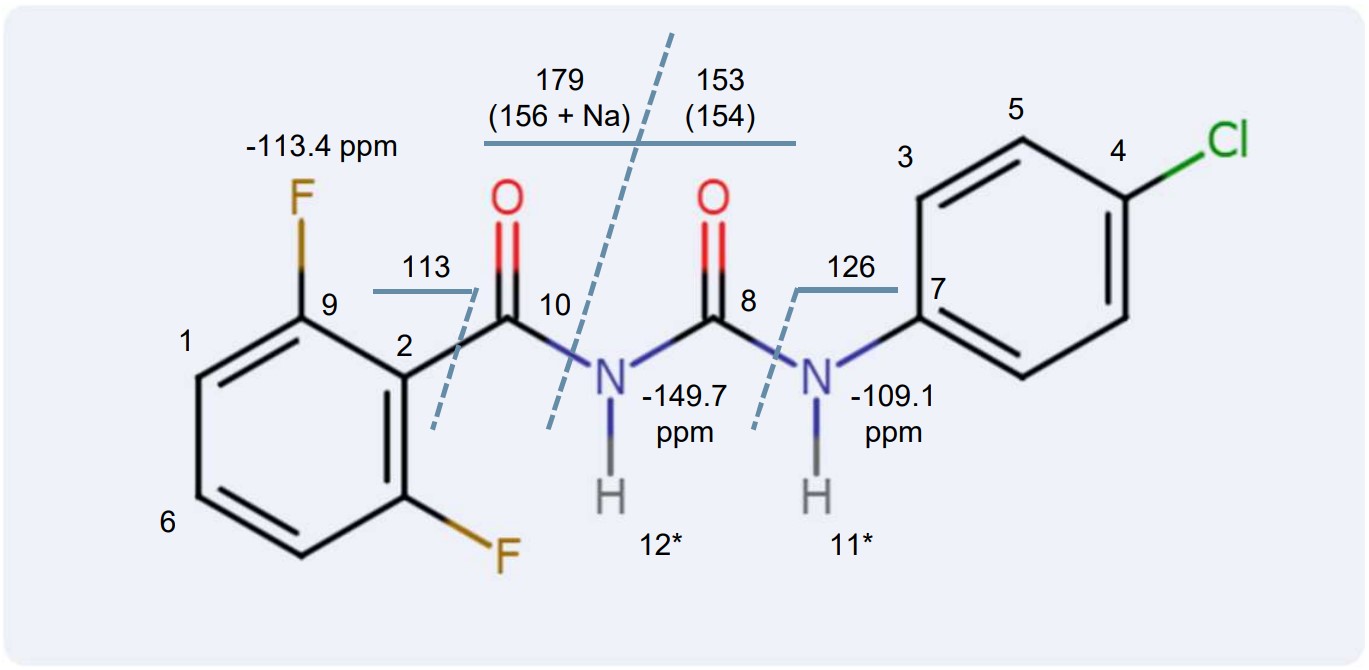
Chemical structure model of Diflubenzuron obtained through MS and NMR analysis
Top : Mass spectrum of Diflubenzuron, JMS-S3000 SpiralTOF™-plus 2.0
Center : MS/MS spectrum of Diflubenzuron
Bottom : 13C with 1H and 19F decoupling spectrum and 1H-19F HETCOR spectrum, JNM-ECZL 500R
Structure refinement of Diflubenzuron
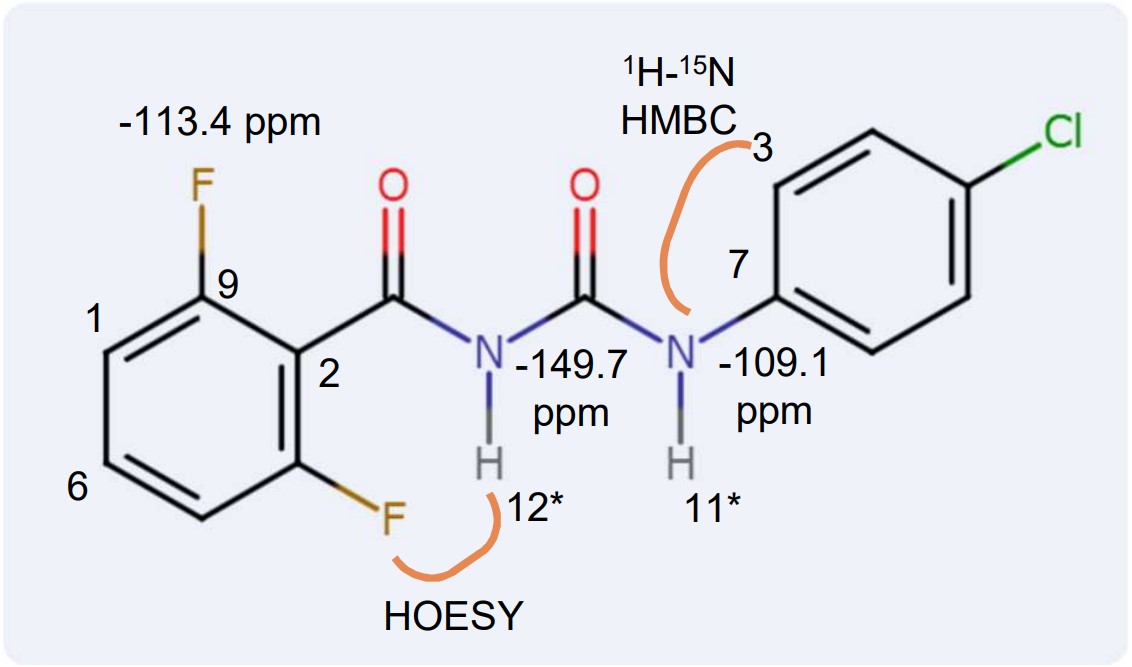
Connectivity information of 1H-19F HOESY and 1H-15N HMBC correlations of Diflubenzuron, JNM-ECZL 500R
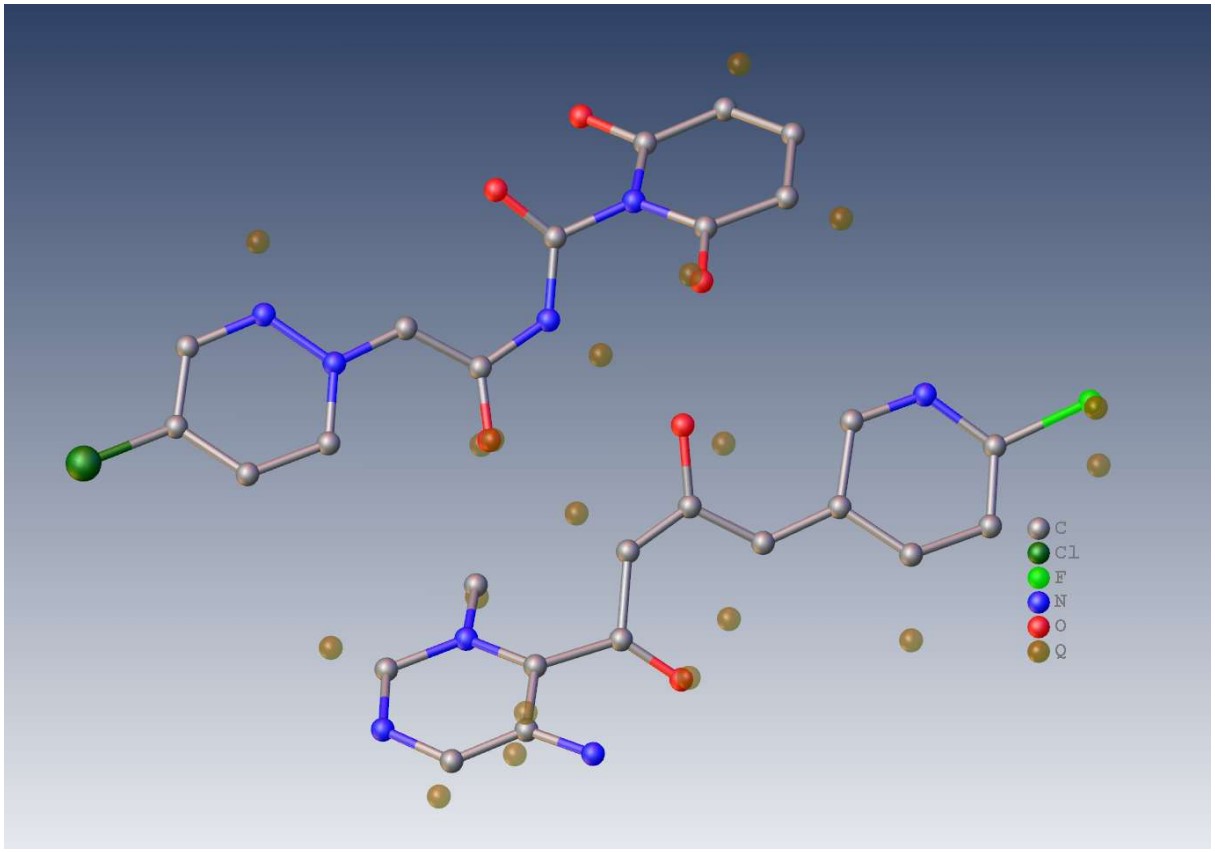
Initial structure model of Diflubenzuron,
Electron diffraction structural analysis, XtaLAB Synergy-ED
XtaLAB Synergy-ED allows single crystal analysis of Diflubenzuron with submicron particles. Diflubenzuron contains hydrogen, carbon, nitrogen, oxygen and chlorine. The molecular structure model is estimated by the electrostatic potential obtained through electron diffraction analysis. An initial structural model is refined with the result of MS and NMR analysis. The Diflubenzuron chemical structural model obtained by MS and NMR analysis provides details of the partial structure to elucidate the molecular model correctly. In the example below, the right-hand is the resulting structure of Diflubenzuron which is refined by the chemical structure model of the MS and NMR result.
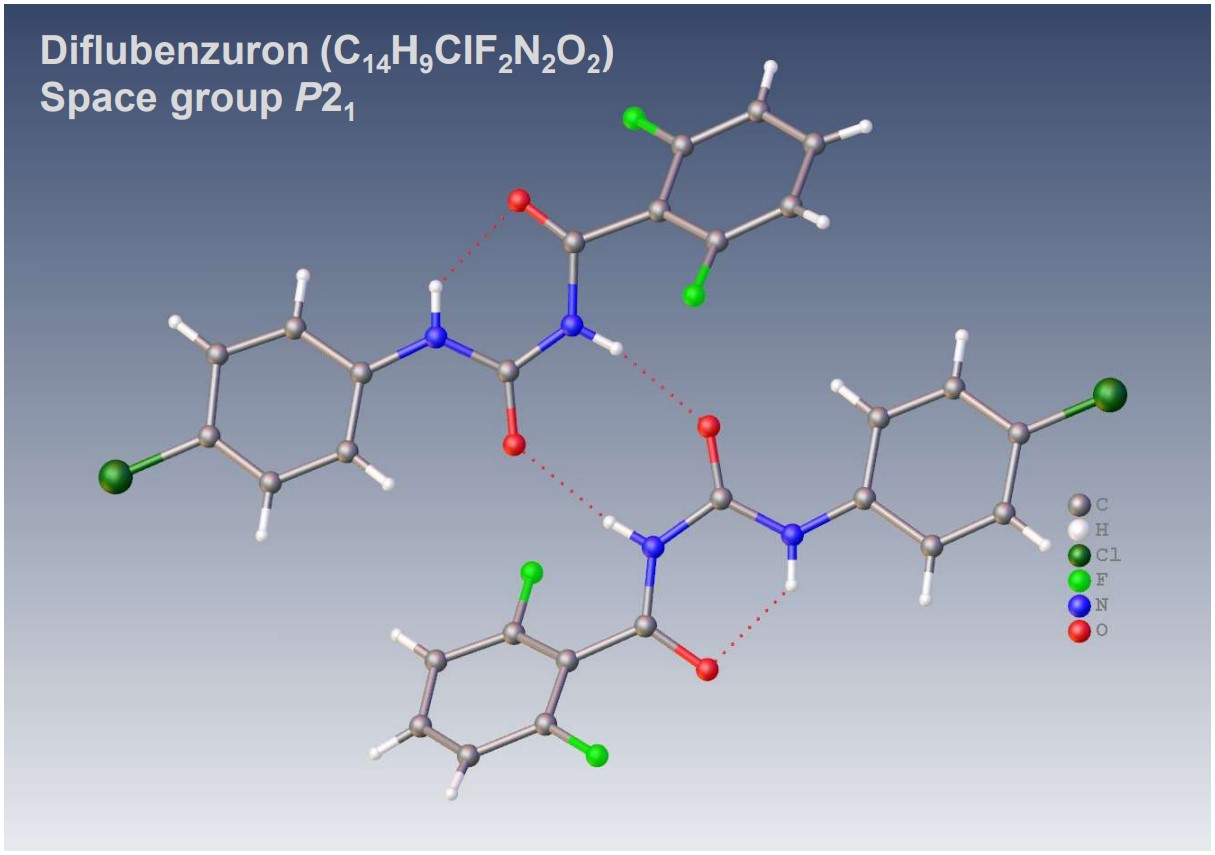
Refined molecular structure of Diflubenzuron
Structure analysis of Riboflavin
Riboflavin is also known as vitamin B2. Various plants contain Riboflavin which causes no risk to human health, therefore it is excluded from pesticide residue analysis. The structure analysis workflow of Diflubenzuron is available for Riboflavin. In the following example, the workflow is applied to Riboflavin. The right-hand is the result of the refined structure of Riboflavin. This structure refinement is confirmed by the result of MS and NMR analysis. The NMR analysis provides details of the partial structure, 1H-13C and 1H-15N connectivity information to properly elucidate the molecular model.
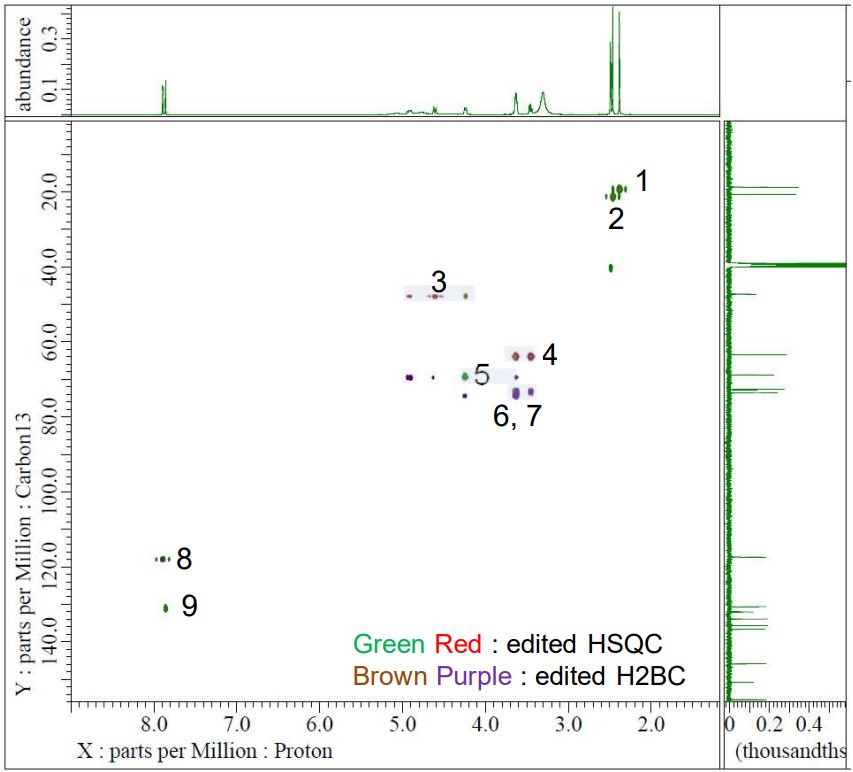
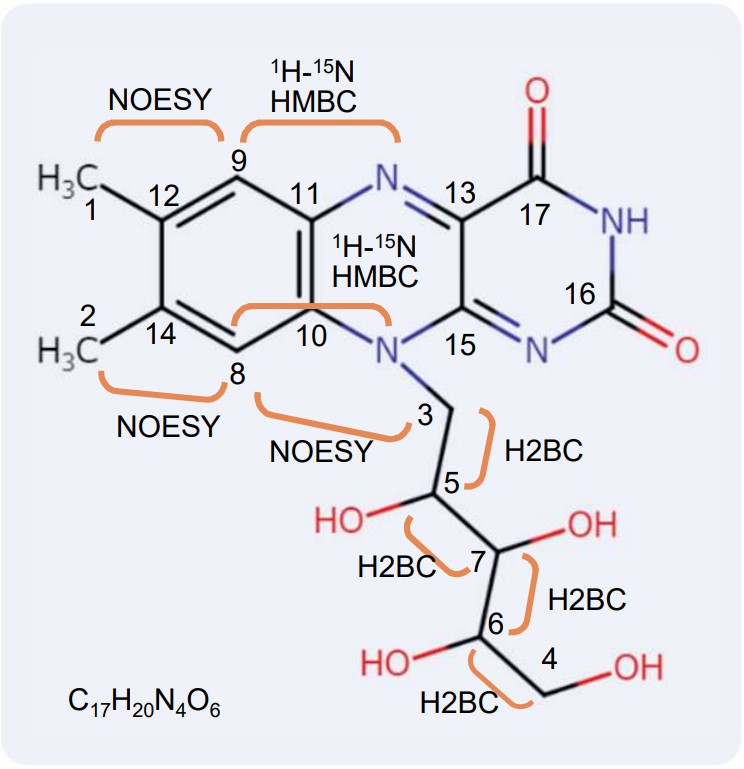
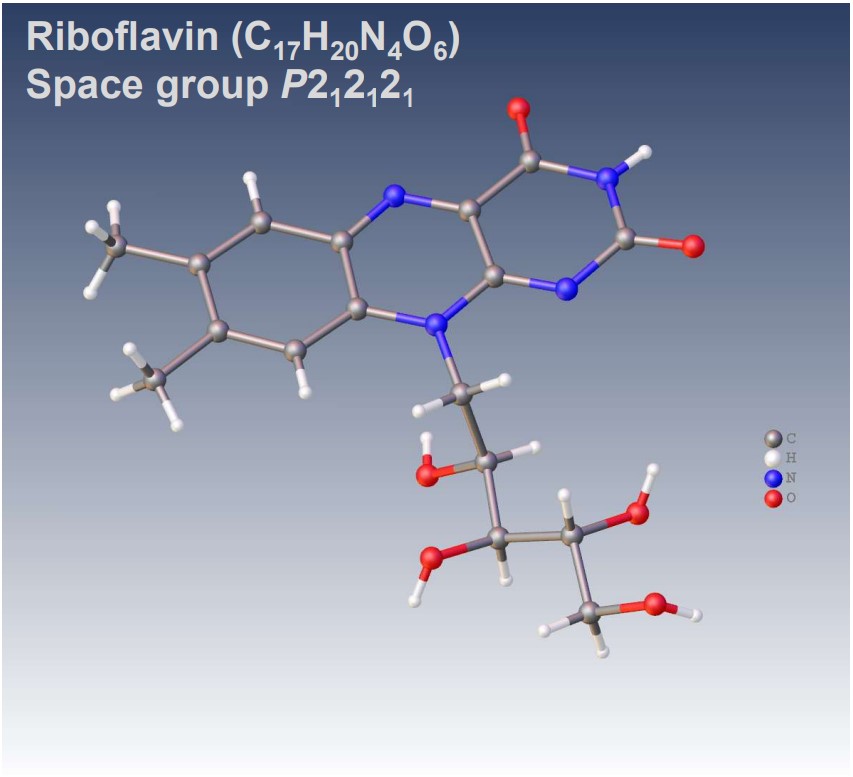
Left : Edited HSQC and Edited H2BC NMR spectra of Riboflavin, JNM-ECZL 500R Center : C-H connectivity information of Riboflavin, JNM-ECZL 500R Right : Refined molecular structure of Riboflavin, XtaLAB Synergy-ED
Solutions by field
Related products
Are you a medical professional or personnel engaged in medical care?
No
Please be reminded that these pages are not intended to provide the general public with information about the products.

